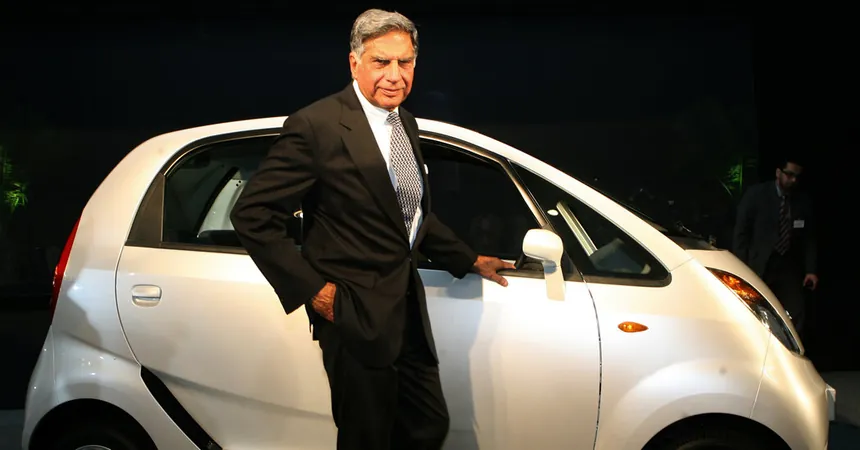
Ratan Tata: The Visionary Behind India’s Global Business Empire Dies at 86
2024-10-10
Author: Ming
Ratan Tata, a legendary figure in Indian business and the driving force behind the Tata Group’s evolution into a global conglomerate, has passed away at the age of 86 in Mumbai. Known for his humility and philanthropic spirit, Tata's death marks the end of an era for one of India's most esteemed industrial dynasties.
The Tata Group, which he led from 1991 to 2012, announced his death without revealing the cause. Reports indicate he had been receiving treatment in a critical care unit prior to his passing. Under Tata’s leadership, the conglomerate’s profits surged by an astonishing 50 times, with significant contributions from international sales of iconic products like Jaguar Land Rover vehicles and Tetley tea.
While Tata Group’s expansion into international markets was impressive, Tata’s legacy in India is even more profound. For millions, daily life was interwoven with Tata products and services—from Tata tea at breakfast to Tata Sky on their television sets, and Tata cars on the road. His influence shaped industries across the nation.
Though several family-run corporate groups began to compete with the Tata Group in the 2010s, none matched Ratan Tata's global respect and adoration. His philanthropic endeavors were well-recognized; he publicly pledged a significant portion of his wealth towards education, healthcare, and support for underprivileged communities, significantly impacting countless lives.
Ratan Tata was born on December 28, 1937, in what was then Bombay, into a distinguished Parsi family with a rich business heritage. The Tata family, which earned early wealth in textiles and trade, brought Ratan into the fold of corporate leadership when he joined Tata Steel in 1962. His formative years were unique; despite the family’s immense wealth, he faced challenges in his personal life, particularly stemming from his parents' divorce.
Educated in the U.S. at institutions like Cornell University, where he earned a degree in architecture, and Harvard Business School for management courses, Ratan Tata's roots in quality education helped shape his innovative approach to business. Known for being private and reserved, he preferred flying under the radar while taking a keen interest in advancements in technology and fostering start-ups through Tata’s venture capital initiatives.
However, Tata's career was not without controversy. In a dramatic turn of events in 2016, Ratan Tata was embroiled in a high-profile boardroom drama when he ousted his successor, Cyrus Mistry, leading to prolonged legal battles that captured public interest. This scandal overshadowed his numerous philanthropic contributions, drawing attention away from his legacy.
Despite the controversies, Tata continued to wield influence well into his later years, representing the Tata Trusts, which control a significant majority of the Tata Group. Even after stepping down as chairman, his voice remained prominent in guiding the conglomerate's ethical standards and social responsibilities.
Survived by family members including his younger brother, Jimmy, and half-siblings, Ratan Tata's impact is etched in both the corporate and social fabric of India. His commitment to merging business with a conscience ensures that his legacy will continue to resonate for generations.
As the world mourns the loss of Ratan Tata, his contributions to global business and philanthropy result in a vast legacy that inspires not just fellow industrialists, but anyone striving to make a positive difference in society.




 Brasil (PT)
Brasil (PT)
 Canada (EN)
Canada (EN)
 Chile (ES)
Chile (ES)
 España (ES)
España (ES)
 France (FR)
France (FR)
 Hong Kong (EN)
Hong Kong (EN)
 Italia (IT)
Italia (IT)
 日本 (JA)
日本 (JA)
 Magyarország (HU)
Magyarország (HU)
 Norge (NO)
Norge (NO)
 Polska (PL)
Polska (PL)
 Schweiz (DE)
Schweiz (DE)
 Singapore (EN)
Singapore (EN)
 Sverige (SV)
Sverige (SV)
 Suomi (FI)
Suomi (FI)
 Türkiye (TR)
Türkiye (TR)